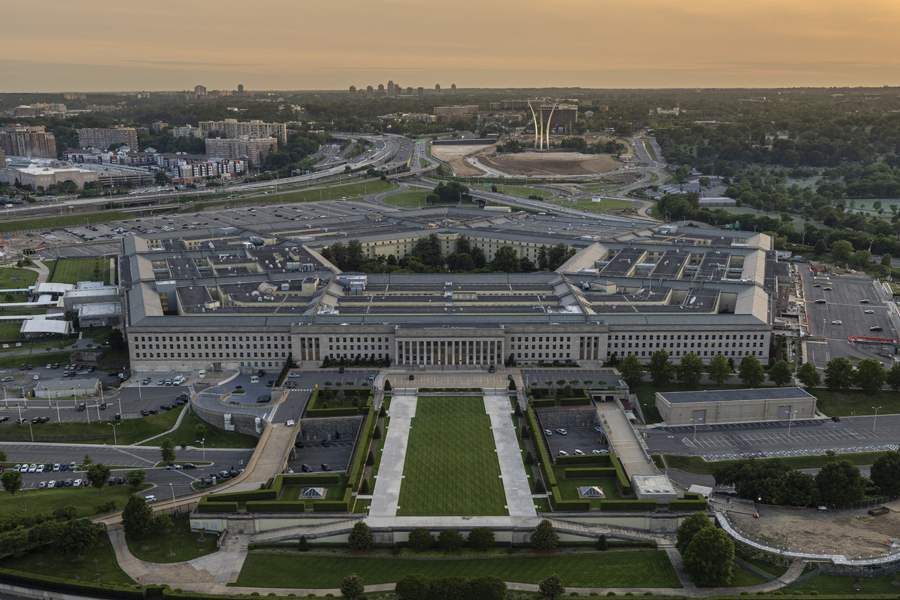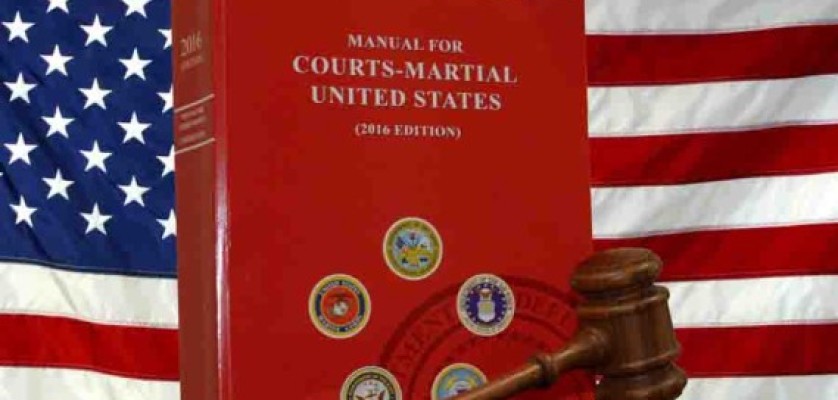The president on July 28, 2023, signed an executive order that changes how some crimes — including sexual assault, domestic violence, child abuse and murder — are handled within the military justice system.
The executive order makes changes to the Manual for Courts-Martial. The changes, among other things, move responsibility for the handling of such crimes away from military commanders to independent military prosecutors, who are outside the military chain of command.
Many of the changes in the executive order are related to recommendations made by the Independent Review Commission on Sexual Assault in the Military, which was created in early 2021 at the direction of Secretary of Defense Lloyd J. Austin III. The commission submitted its final recommendations to the president in June 2021.
Following his personal review of the commission’s recommendations, Austin said he had a “strong bias” toward accepting them and added that doing so was part of taking care of the military’s most important asset: its people.
“Our most critical asset as a department is our people, and our people and readiness are inextricably linked,” Austin wrote in a June 2021 memorandum. “We will remain the preeminent fighting force in the world because we strive to better take care of our people. Our values and expectation remain at the core of addressing this problem, and I have every confidence that our force will get this right.”
According to a senior administration official, the executive order amends the Manual for Courts-Martial and its accompanying rules in several ways.
First, the order establishes rules to govern the new special trial counsels, who will serve as the independent military prosecutors. They will decide, in place of military commanders, whether to prosecute allegations of sexual assault, domestic violence, and certain other serious offenses.

The order also:
* Establishes that prosecutorial decisions made by the special trial counsel are binding and are fully independent from the military chain of command.
* Clearly delineates the relationship and authorized interactions between special trial counsel and commanders to protect the independence of the special trial counsel.
* Updates the procedures necessary to protect victims and the accused before, during and after court -martial proceedings.
The administration official also said the executive order reforms the sentencing system to promote uniformity and fairness, as recommended by the commission to reduce disparities in sentencing in cases of rape and sexual assault.
“Lastly, [it creates] a uniform, ‘preponderance of the evidence’ standard for the imposition of non-judicial punishment, which the IRC highlighted as critical to make consistent across the military services, given that most sexual misconduct cases are handled by non-judicial punishment, rather than courts-martial,” the official said.
Under the new rules, the official said, the special trial counsel has the “right of first refusal” when it comes to deciding whether to be involved in prosecuting some crimes committed by military personnel.
“This is a shift in the way the military justice system does business fundamentally,” the official said. “What was really important with the specific rules that are being changed through the order … is effectively that the special trial counsel — these independent prosecutors — have the right of first refusal when cases come up that fall under any of the crimes or covered offenses.”
When a crime is reported, the official said, military police, for instance, will connect with the special trial counsel first, and the special trial counsel will assess if the case falls within its purview. If it doesn’t, those crimes could be referred to commanders using the traditional military justice system, where commanders, with advice from judge advocates, will determine what to do.
According to the official, the effective date for the changes, as directed by the National Defense Authorization Act, is Dec. 27, 2023, and will apply to offenses committed after that date.










